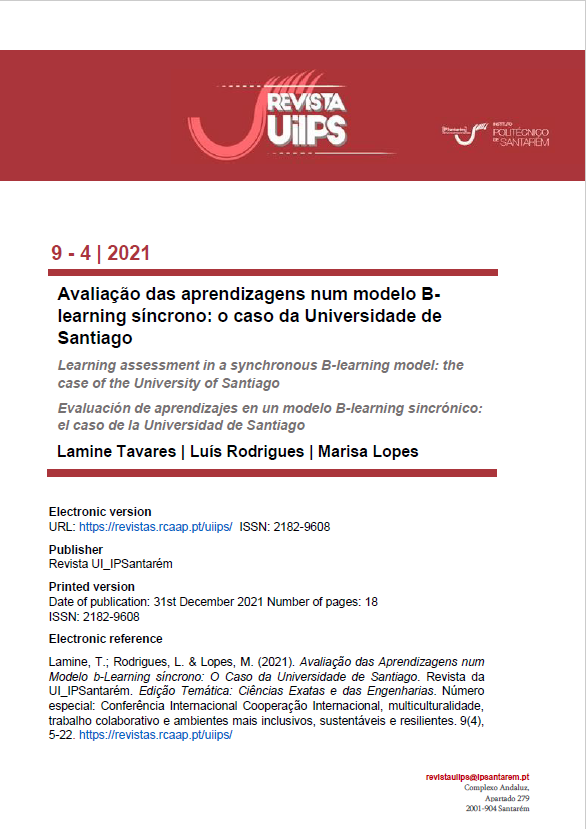Learning assessment in a synchronous B-learning model: the case of the University of Santiago
DOI:
https://doi.org/10.25746/ruiips.v9.i4.26206Keywords:
Synchronous B-learning, Knowledge assessment, Learning environmentsAbstract
In response to the Covid-19 pandemic, many Higher Education Institutions opted for a synchronous B-learning methodology. This was also the institutionalized solution at the University of Santiago in Cape Verde. This model has several advantages, but some challenges as well, namely in guaranteeing efficient and rigorous knowledge assessment modalities and instruments. Thus, this article aims to understand the perception of US students in relation to assessment, the domain of technologies and their predisposition to an assessment model adapted to the new reality. To this end, surveys were applied to students at this University. The results reveal that the assessment follows a traditional approach, although they dominate the technologies to carry out assessments in different formats and recognize the importance of innovations at this level. At the same time, mistrust remains in relation to the different modalities, online and in person, in carrying out assessments. It is suggested that the assessment instruments be adapted and diversified, investing in training and awareness of those involved. Finally, a differentiated assessment must be accompanied by innovative teaching focused on student learning.

Downloads
Published
How to Cite
License

This work is licensed under a Creative Commons Attribution-NonCommercial-NoDerivatives 4.0 International License.
Authors publishing in this journal agree to the following terms:
Authors retain copyright and grant the journal the right of first publication, with the article simultaneously licensed under the Creative Commons Attribution License that allows sharing of the work with acknowledgement of authorship and initial publication in this journal.
Authors are permitted to enter into additional contracts separately for non-exclusive distribution of the version of the article published in this journal (e.g., publish in an institutional repository or as a book chapter), with acknowledgment of authorship and initial publication in this journal.
Authors have permission and are encouraged to publish and distribute their work online (e.g., in institutional repositories or on their personal webpage) at any point before or during the editorial process, as this may generate productive changes, as well as increase the impact and citation of the published work.


